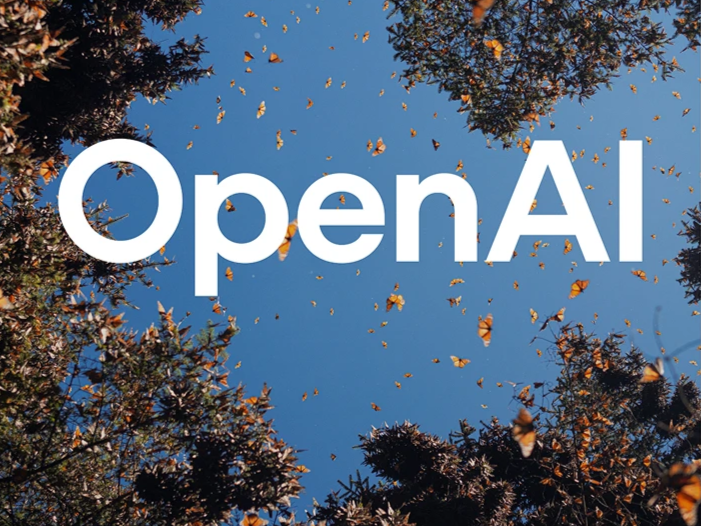Alphane Moon
That there is no perfect defense. There is no protection. Being alive means being exposed; it’s the nature of life to be hazardous—it’s the stuff of living.
- 254 Posts
- 745 Comments

 11·2 months ago
11·2 months agoHyperNormalisation has its flaws (too big of a focus on a single “theory of everything”) and an argument can be made that it emphasizes style over substance, but it’s a great experience. Even if I disagree with some of the structural arguments of HyperNormalisation, it does raise a lot of good points and in a very engaging way.
I would also recommend Bitter Lake from the same director which IMO is a more intense experience.

 4·2 months ago
4·2 months agoThank you!
I did check the site, but I missed it.

 24·2 months ago
24·2 months agoI wish there was a text transcript of this, I will check the video out after the holidays though.

 41·3 months ago
41·3 months agoA lot of the “less active ones” are completely dead. Many mid-tier topics (not niche, but not “meme shitpost”) have a sea of dead communities and 1-2 active ones and it’s difficult to find them without actually clicking through the full list of results.

 761·3 months ago
761·3 months agoThe writing was on the wall when they started getting American VC money.
American VC culture is anthenema to truly user focused products.

 3·3 months ago
3·3 months ago- Better on-boarding - For non-technically inclined users, Fedi can be challenging. I personally strongly oppose the “join by selecting instance” type sites. There should be an algorithm automatically signing up users based on region, refer header and perhaps some sort of random selection
- With respect to Threadi, when a user is logged in, all links to instance/communities should automatically be transformed to the “view via your instance format” (!technology@lemmy.world).
- Movement to Piefed (I am aware I am posting from a Lemmy account, this one is used for managing !hardware@lemmy.world, I used Piefed) - tankies are a major turn off for people across the globe and across the political spectrum.
- Target users who are recognize the severe dangerous of US oligarchy. More and more people are recognizing that the American model is a dead end.
- Target open source communities. I don’t understand why r/linux or r/BSD are not making a move to directing users towards Threadi
And most importantly: post, comment, upvote.
Note, I am doing some of these thing when I can.

 34·3 months ago
34·3 months agoThe corrupt oligopolists have completely given up on QA; why would they bother when they don’t feel any real competitive pressure.
AFAIK, this has been happening as far back as Windows 8. I believe they had a giant pool of physical PCs (laptops, pre-builts and various popular component combinations for desktop) that they physically tested updates on, but they scrapped all of it because they know they don’t need to worry about competition.

 1·3 months ago
1·3 months agoI’ve used vibe coding in a project where the coding part was small (20% of the total project, with the complex stuff being the remaining 80%) and it had relatively straightforward workflow that could be tested and accounted for without strange edge cases.
It’s not only nepo/conmen types who use vibe coding.

 21·3 months ago
21·3 months agoFor sure, I am talking about smaller projects where programming elements are relatively low key and critical parts are the business logic and how it impacts UX/UI and use case flows.
I was between projects and I needed money so I accepted a project from a repeat client where I knew 80% of it very well (and how to implement it), but there were parts that I vibe coded (albeit they were simple enough that I could understand the logic of what I was deploying even though I don’t know how to code).
The contract size was simply too small for me to get a subcontractor, I would be giving them most of payment (while doing 80% of the work).
I think it’s fair to use vibe coding in such situations.
I would not risk vibe coding in a situation where I felt I would be undermining the clients’ project (I want repeat clients and I don’t want to have to spend time fixing things for free).

 6·3 months ago
6·3 months agoBill Gates is a horrible person, he is a criminal.
Microsoft’s oligopoly (officially sanctioned and enabled by US society) has cost the world hundreds of billions of dollars if not more.
Not to mention his committed support for the current oligarch regime and global corporate criminality more broadly.
That being said, I don’t think everyone at Microsoft or Google is evil, but a far larger percent of their employees are evil than one would think (i.e. it’s not only the senior executives).

 3·3 months ago
3·3 months agoThere are specialized niche services/domains in B2B professional services and engineering where it’s honestly difficult to be evil due to the nature of the domain and because it’s B2B.
One could argue you are are still enabling evil companies, which is fair, but at least you’re not really harming anyone.

 74·3 months ago
74·3 months agoI could place orders without giving my contact details or payment.
This isn’t a “vibe coding” issue. This is just basic laziness/fraud. Even with vibe coding, you can get by if the project is simple, you know the business/operational elements of the domain, you aggressively test the solution and are aware of at least common edge cases.

 81·3 months ago
81·3 months agoSounds a bit too good to be true.
These genre of articles “China invents magical technological” has become very popular in the last 5 years.
Not saying this isn’t a massive breakthrough or that fundamental research isn’t important (it very much is), but one should always maintain a critical posture to such things.

 49·3 months ago
49·3 months agoThey will give up on “Aluminium OS” in 12 to 18 months.

 2·3 months ago
2·3 months agoThis what I was trying to setup when I first started (with Nginx, domain and free tier version of Google Cloud). I wasn’t able to get it all running with Nginx and HTTPS.

 4·3 months ago
4·3 months agoI am relatively sophisticated on LAN/local services (been running Raspberry Pi since 2018 or so), I was never able to setup a reverse proxy to get a true self-hosted system (i.e. remote access); got roadblocked by nginx and setting up letsencrypt with reverse proxy support.
In general, true remote access is IMO exponentially more difficult and demanding than getting things running on your local network.
For anyone starting out with self-hosting, I would strongly recommend LAN/local services where you can relatively easily deploy multiple very useful and powerful services (SMB/NAS, Jellyfin, Pi-hole, Qbittorrent-Nox).
I would suggest looking into DietPi, it’s IMO the best RaspberryPi/SBC distribution there is if you want things to just work and not bug you. Very helpful developers and community too. Excellent, user friendly CLI management tools for headless operation.

 9·3 months ago
9·3 months agoFor that kind of money, I would expect the SSD drive to be able to provide some other qualities beyond technical things like capacity/bandwidth/latency.
Some very good qualities.

 91·3 months ago
91·3 months agoTrash tier “article”.
You might as well go for the original BBC interview, while looks to be only in audio for now.

 31·3 months ago
31·3 months agoThe Xiaomi Mi A1 from late 2017 had very good ROM/rooting capabilities when I last used it 4-5 years ago. It didn’t have a removable battery though. The second sim slot can function as a microSD card and it has a 3.5 mm audio port.
Checking the LOS website, they say it has support for LOS 20 / Android 13, which is pretty impressive considering the official ROM only went up to Android 9.0. I stopped using the device on LOS 17.1 / Android 10.





I thought this was the case already.